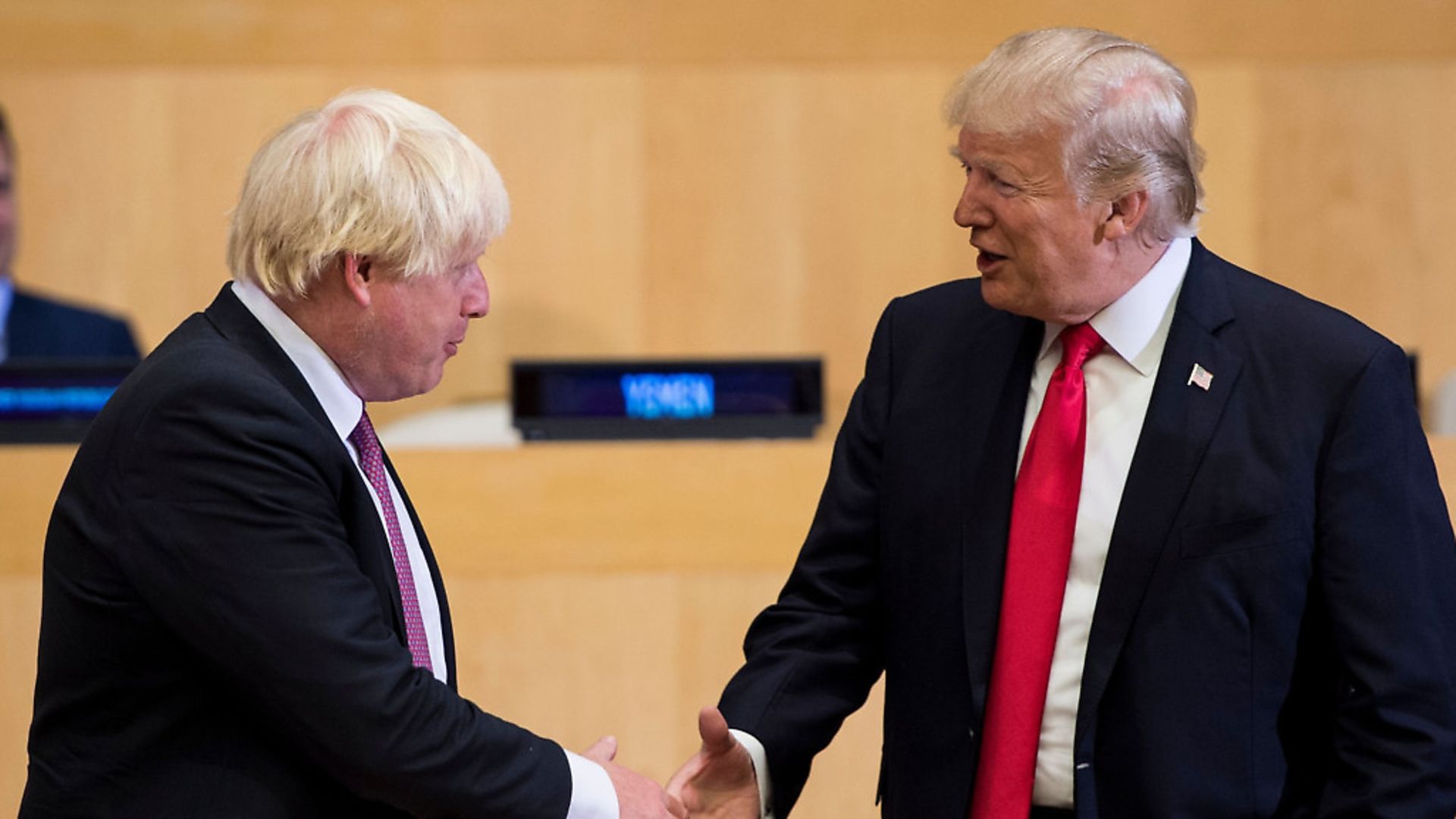
American writer NAOMI WOLF reflects on the Trump-Johnson axis and what it means for Britain.
You now live in Boris Johnson’s Britain, and it’s my bet that what lies ahead will look nothing like British political discourse has traditionally. Instead, it will look more and more, I am sorry to tell you, like chaotic, hate-driven, hysterical America. Within moments of Johnson’s victory, “Dear UK” was trending on Twitter, as Americans sympathised with Britain about what we know lies ahead.
Why do we know this? Because it seems clear that the Conservatives’ new leader has taken leaves from Donald Trump’s playbook. He has also, according to some reports, taken guidance from the same adviser. Former Trump aide Steve Bannon claimed to have helped craft Johnson’s first speech after his resignation as foreign secretary, in which he tore into Theresa May’s Brexit strategy.
Bannon, of course, was the former executive chairman of Breitbart News, the far-right media behemoth. He then became the chief executive officer of Trump’s 2016 presidential campaign. He was later appointed chief strategist to the Trump administration, though he left the White House in 2017. Bannon famously crafted a successful presidential campaign based on hyped fears of immigrants, whipped-up hatred of LGBTQ+ people, and hystericised racial division. Trump continues to use strategically deployed hate-filled tweets, such as his recent attacks on four congresswomen to go back to where they “came from”, as a way to rouse his base. The strategy is still working.
Johnson’s team strongly dispute the extent to which Bannon has been advising their man, with the new prime minister himself – while acknowledging he received text messages from Bannon – describing the reports as “codswallop”. But whatever the nature of that particular relationship, the Johnson-Trump strategic alliance has already been forged.
This alliance was obvious in how Trump’s state visit to the UK earlier this summer had talking points aligned to support the Johnson camp. The teams around the ‘principals’ – as US political consultants and White House aides call their bosses – were likely already in talks with one another, so plenty of information as to how to manage electorates according to the Trump playbook could be confidentially shared between the US and UK groups, and Trumpian techniques transmitted.
US political consulting is now global. People who are not insiders in this world might not understand this, but political consultants now constantly advise candidates beyond their national borders. Dick Morris, with whom I worked, went from winning the Clinton re-election in 1996 (and being disgraced domestically in a sex scandal) to advising Latin American candidates to win in exactly the same way. David Axelrod advised Ed Miliband’s Labour on how to win, using the same messaging that helped elect Barack Obama, on whose campaigns he worked. Jim Messina, another former Obama aide, crossed ideological lines and advised the Tories on how to sell Britain a message of fear of immigrants.
President Trump, as I mentioned, has constantly attacked transgender people and energised his base, which won his election and represents the only way he can win re-election next year. That means speaking only to the extremes, not to the middle, about LGBTQ+ rights. In June, Ann Widdicombe, the Brexit Party MEP, gave an interview in which she suggested science could “produce an answer” to being gay. A few weeks later, the new Israeli education minister made similar remarks. These politicians don’t need to be advised by the same folks, though they may be, to see what works strategically in aligned parties in other democracies.
Advisers easily cross-pollinate across nations these days. Bill Clinton’s advisors, such as Sidney Blumenthal, had close ties to the team around former prime minister Tony Blair. Blair, in turn, became an adviser to a consulting firm, Teneo Strategies, that employs former Clinton aides. Most recently, Teneo has made headlines for employing Huma Abedin, Hillary Clinton’s former deputy chief of staff, while she also worked for the State Department and the Clinton Foundation. These enmeshed, transnational relationships are common as well on the right (though better hidden, as conservatives tend to be more disciplined about message).
Such non-transparent entanglements mean that there are transnational alliances and economic rewards driving what seems to be national debate in a given campaign, but about whose real crafters and true beneficiaries, voters never really know.
Funding campaigns are also now transnational. The same fundraisers in the US raise money for America candidates – and also for those in Israel who share policies that their wealthy donors support. Though Russian influence on US elections has been the stuff of shock and horror in the US news, political insiders know perfectly well that funds from Ukraine, China, Turkey and Israel pour into our political system indirectly in every election cycle, to sway outcomes.
The UK has a cleaner system of funding campaigns than does the US – but the use of PayPal by various campaigns has recently raised questions over the risk of foreign money corrupting UK elections now as well.
British voters and institutions also seem a bit naïve about how US-style money corruption can flow around barriers against direct campaign funding – especially in the form of extranational contracts for privatised national resources (one reason Trump spoke about privatising the NHS on his visit to Britain). That deal could already be done, and British voters will have to be sold on it after the fact.
This is a sequence that I learned as a political consultant, and knowledge of which is constantly branding me as a ‘conspiracy theorist’. But any political consultant knows the true sequence of most political events at the highest levels of government: first comes the deal, that almost no one knows about; second comes the message explaining away the deal, to be sold to national media; and only last comes the policy, often crafted simply to justify the undisclosed deal.
All of this means that ‘crises’ about which formerly temperate, moderate British voters in the months and years ahead will be asked to freak out, or policies to which they will be asked to direct attention, will no longer organically arise necessarily from their own national concerns. You can have a national preoccupation that results in a national policy, entirely orchestrated by outsiders these days.
Dear UK: I too – am really sorry.
Naomi Wolf is author of Outrages: Sex, Censorship and the Criminalization of Love, and CEO of DailyClout.io, a US-based civic tech company
See pages 25 and 26 for her take on the furore surrounding her latest book









